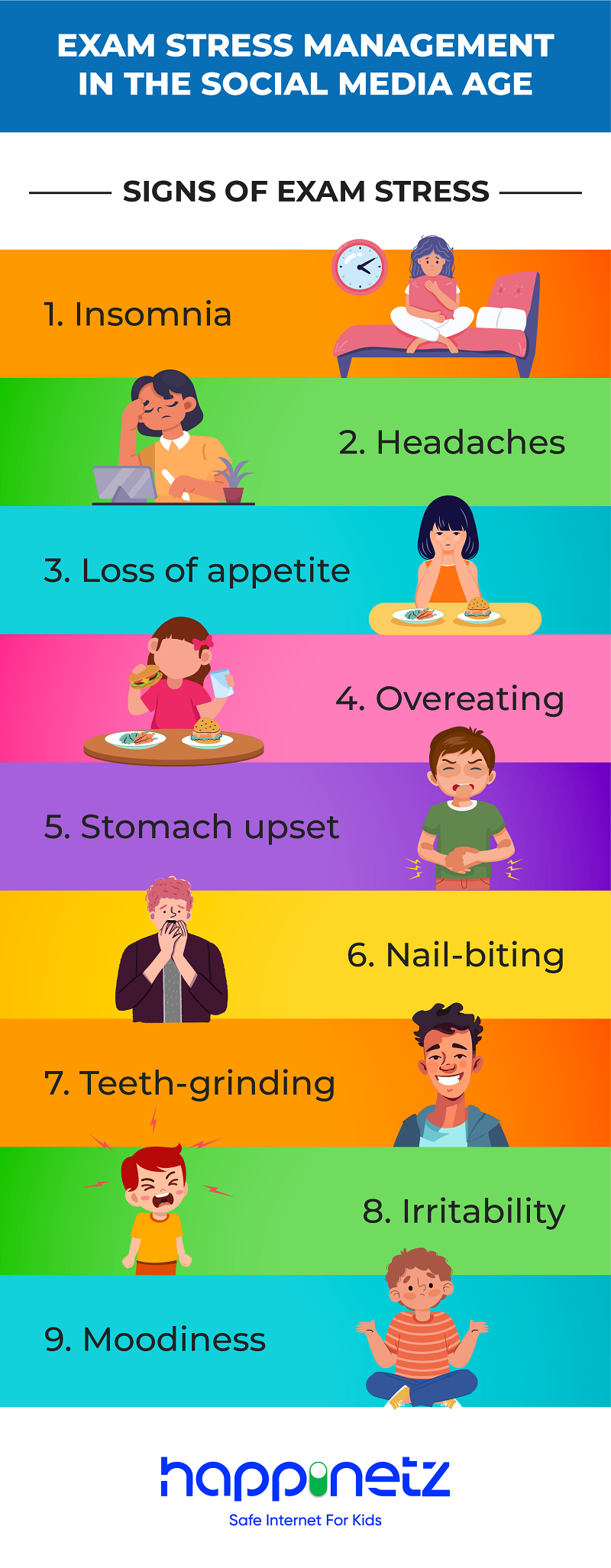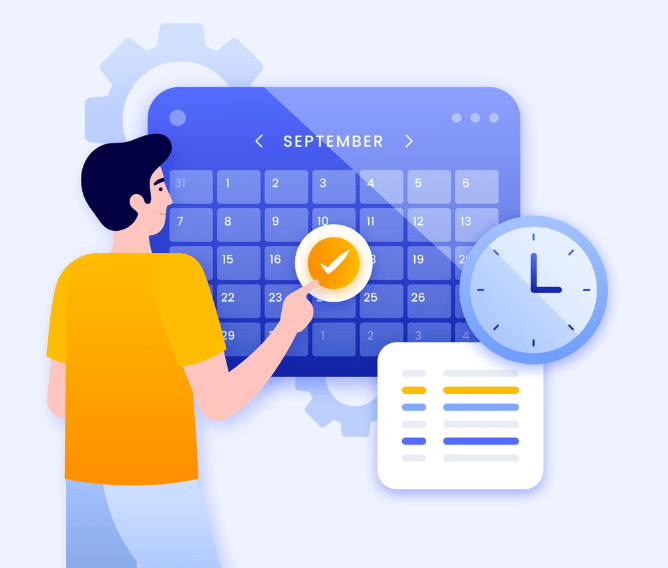Wherever in the world you are, it will be quite a task to find someone who actually enjoys writing exams - for the majority of the population, exams are a major source of stress and they couldn't be happier to leave that phase behind!
However, in this age of social media, exam stress takes on a whole new shape and form, especially as competitive exams have gotten more cutthroat than ever before. Kids these days are worried about a lot of things - I don't feel like I've prepared enough. I don't have enough time. Will I fail? Will I disappoint my parents?

Thoughts like these serve no useful purpose and are in fact, detrimental to success. That's why it's important to think about exam stress management seriously, especially in the age of social media.
Exam Stress Management in the Age of Social Media
While all children experience exam stress, some of them may not express it in words. For many children, exam stress may appear in the form of physical symptoms like insomnia, headaches, stomach upsets, nail-biting or teeth-grinding. In others, the stress can be emotional, making them irritable, silent or withdrawn.
These symptoms often start out as minor signs, but if left unchecked, they can grow into a long-term chronic condition like anxiety, which can worsen exam performance. Avoid this vicious circle by managing stress the right way, with these helpful tips.
6 Exam Stress Management Tips for Students
1. Clear your doubts
In many cases, stress is due to a lack of clarity. Maybe the child is not sure about the topics to be studied or has some doubts about a few things. Getting these out of the way at the beginning is a huge relief and leaves the mind clear to focus on actually learning.
2. Create a timetable
"How do you eat an elephant?" One bite at a time! Once you know what needs to be studied and how much time you have, it's time to split things up.
Break down the study material into chunks and divide it between weeks and then break it down further into days. Make a timetable based on this information, assigning a certain topic or topics for each day. This will get rid of the stress of not knowing where to start. Be sure to plan in buffer days or relaxation days too.
3. Avoid distractions
Exam stress management in the social media age has a lot to do with managing distractions. A report by BMC Public Health found that increased mobile phone use led to more sleep disturbances and signs of anxiety.
Staying away from the internet completely may not be feasible, which is why a device like Happinetz is perfect. It can help schedule internet for specific times, keeping it unavailable for the rest of the time, and thus nipping the distraction in the bud.
4. Gamify your study
Gamification is a recent trend that young people are using to make boring or overwhelming tasks more fun and doable, and it can also prove to be an effective exam stress management technique for students.
Gamification is about incorporating elements of video games into a task, like levels, rewards, etc. For studies, it could be relating the study material to a story, giving fun names to topics, creating levels after completing certain topics and assigning a reward at the end of each level.
5. Take frequent breaks
There is a limit to how long the human brain can completely focus on a task before it starts to wander. Prepare for this beforehand by scheduling breaks into your study time. This could be different for everyone - some students may need a break after 25 minutes, while for others, it may be 45 minutes.
Avoid using the break for social media - a study by the University of Technology Sydney (UTS) found that students who used social media for three hours a day saw a decrease of 10% in their exam results. Use a device like Happinetz to selectively block websites and apps like social media platforms. Instead, use that time for a short walk, stretching, listening to music, talking to a friend or family member or simply meditating.
6. Find a study partner or group
An unconventional tip for exam stress management is to prepare for exams along with your friends or peers. A study published in Linguistics and Education found that revising with others helped everyone in the group absorb better. Group members can also explain topics to each other - another technique that improves retention of the subject.
Exams are stressful; there's no doubt about it. However, kids need to realize that while tests and exams are important milestones on an educational journey, they are not the be-all and end-all of things. Understanding that a bad performance is not the end of the world takes a lot of the pressure off and prevents catastrophizing results. Life is much more than exams - no matter what others make it look like!
FAQs
1. Isn't exam stress a normal part of growing up?
Exam stress is common, but it can lead to a lack of confidence and lower concentration. If left unattended, it can grow into a chronic condition like anxiety.
2. What does exam stress look like?
Exam stress can look like difficulty sleeping, reduced appetite or overeating, moodiness, irritability, aches and pains or being withdrawn. Everyone experiences these symptoms differently.
3. How can I make exams less stressful?
Start by clearing any doubts and setting a timetable for studying. You can try innovative measures like gamification of your studies, or create a group with whom you can study together.
4. How can I focus on my studies better?
Try time management techniques like the Pomodoro method, which gives a 5-minute break after every 20-minute study session. Avoid distractions by using devices like Happinetz, which can block specific websites and schedule internet use.




